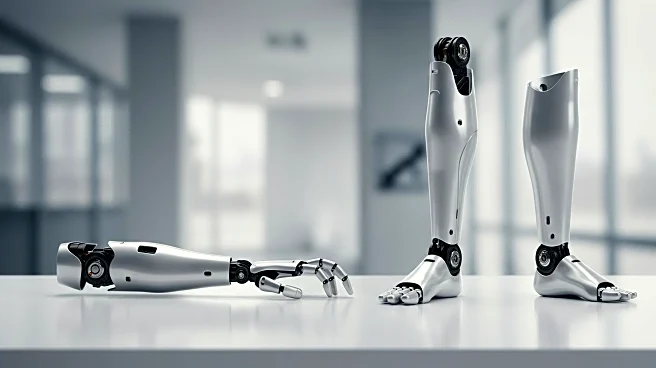What's Happening?
Scientists have warned that future humans may become hairless and lose four other body parts due to changes in modern lifestyles. These evolutionary shifts are driven by advancements in diet, technology, and environment, which could lead to the gradual disappearance of traits that were once essential for survival. Researchers are particularly focused on how modern comforts, reduced physical activity, and medical advances could reshape human anatomy. Body parts such as hair, wisdom teeth, tailbone, appendix, and ear muscles are identified as potentially becoming redundant over time. For instance, body hair, once vital for warmth and protection, is now largely cosmetic and may continue to fade. Similarly, wisdom teeth, which helped ancestors grind tough foods, are becoming unnecessary due to softer modern diets.
Why It's Important?
The potential evolutionary changes in human anatomy reflect broader societal shifts and technological advancements. As humans adapt to modern comforts, certain physical traits may become obsolete, impacting medical practices and societal norms. The reduction or loss of these body parts could lead to changes in healthcare approaches, such as fewer dental surgeries for wisdom teeth removal or reduced instances of appendicitis. Additionally, these shifts highlight the influence of lifestyle and environmental factors on human evolution, prompting discussions on the long-term implications of technological reliance and sedentary habits.
What's Next?
Future research may focus on understanding the implications of these evolutionary changes and how they could affect human health and anatomy. Scientists may explore the potential benefits and drawbacks of losing certain body parts, such as the appendix's role in immune function. As these changes unfold, medical professionals and researchers may need to adapt their practices to accommodate evolving human anatomy. Public awareness and education on the impact of lifestyle choices on evolution could also become more prominent.
Beyond the Headlines
The gradual disappearance of certain body parts raises ethical and cultural questions about the role of technology and modern lifestyles in shaping human evolution. It challenges traditional views on human anatomy and prompts discussions on the balance between technological advancement and natural evolution. These changes may also influence cultural perceptions of beauty and body image, as traits like body hair become less common.









